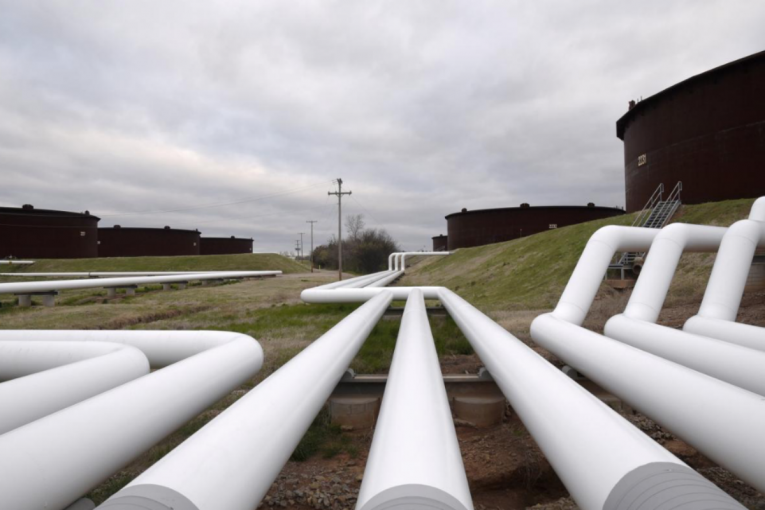
CALGARY, Alberta (Reuters) – Existing energy pipelines in North America are becoming increasingly valuable because investor focus on environmental, social, and corporate governance (ESG) issues is making it more difficult to finance new infrastructure, midstream industry executives said on Wednesday.
The “tobaccofication” of the energy industry in recent years has led to less money flowing to the midstream sector as investors and the public increasingly focus ESG investments, Peter Bowden, global head of energy investment banking at Jefferies, told IHS Markit’s CERAWeek conference.
“It has become much more difficult to finance these projects,” Bowden said, referencing midstream projects. “In terms of equity capital the markets are severely depressed.”
From 2013 to 2015, average equity issuance per year for midstream was $25 billion, but in the three years through 2020, it averaged just $1 billion yearly, he added.
New oil and gas pipeline projects are a “huge leap”, Al Monaco, chief executive of Canada’s Enbridge Inc said at the conference, and companies are instead prioritising expansions, repurposing, and extensions of existing assets.
“The value of the pipe we have in the ground is increasing. We have not seen that reflected yet in equity prices but it’s got to get there because you simply cannot replicate (it),” Monaco said.
Calgary-based Enbridge’s Line 3 replacement project, which will ship more oil sands crude from Alberta to the U.S. Midwest, has faced years of regulatory delays and legal challenges. Rival TC Energy’s Keystone XL oil pipeline was blocked earlier this year when U.S. President Joe Biden revoked its permit.
Alan Armstrong, CEO of Tulsa, Oklahoma-based, pipeline operator Williams Companies Inc, said natural gas infrastructure is also being impacted by the move away from fossil fuels, even though it should play a role in the energy transition. Natural gas is abundant in the United States and has lower carbon emissions than coal.
Both Armstrong and Monaco said existing infrastructure would be key in transporting renewable fuels and clean energy sources like hydrogen in future.
Share This:
You can read more of the news on source



